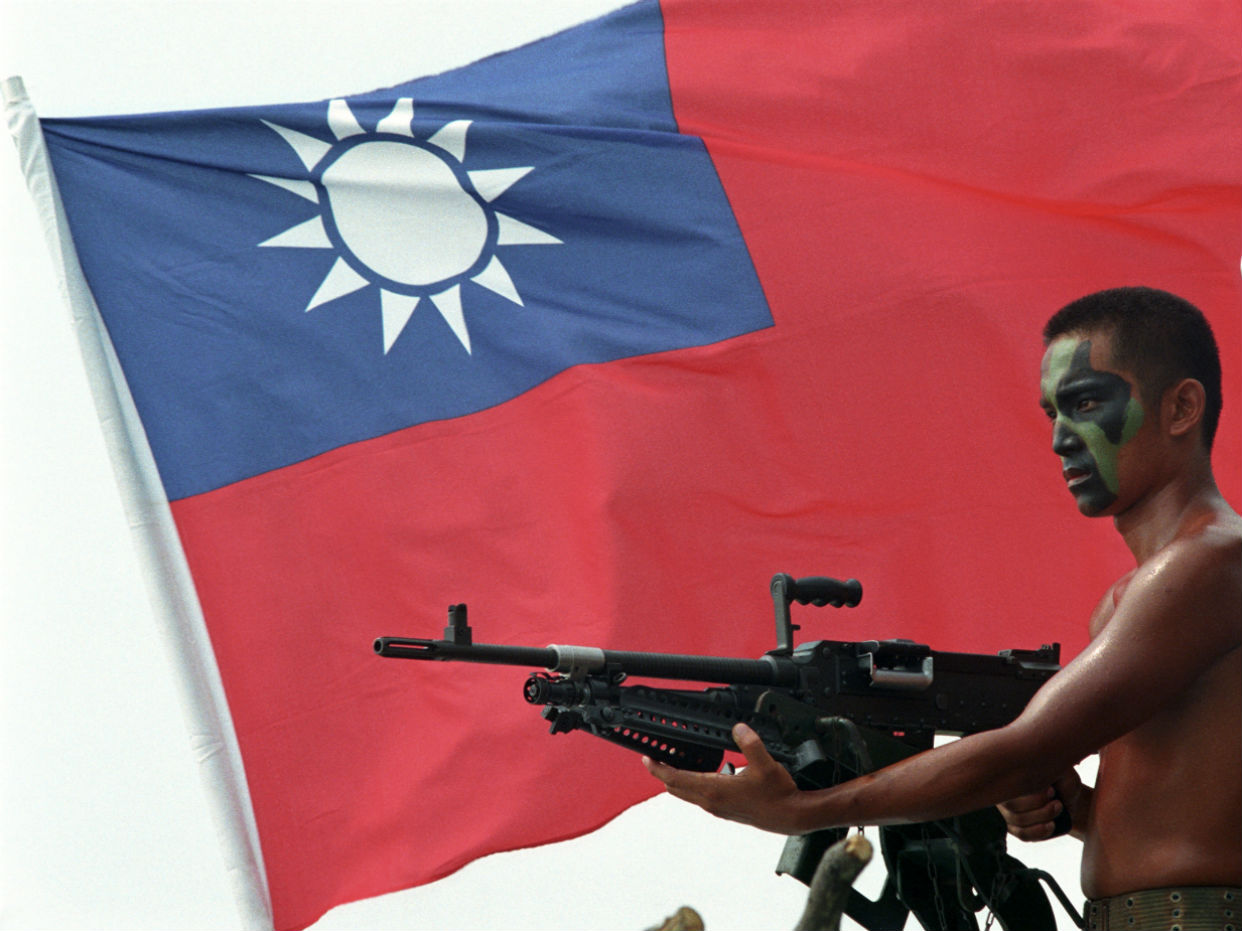Are China and Taiwan heading for war?
President of self-governing island vows to defend freedom in wake of reports of China’s invasion plans

A free daily email with the biggest news stories of the day – and the best features from TheWeek.com
You are now subscribed
Your newsletter sign-up was successful
Taiwanese President Tsai Ing-wen has sworn that her government will defend the self-governing island’s freedoms and democratic system, amid heightened tensions with China.
“We need to remember democracy and freedom were rights obtained through all of Taiwan people’s countless efforts,” Tsai said in a speech on Tuesday to mark Taiwan’s National Day. “Therefore, we need to use all our power to defend Taiwan’s democratic and freedom values and lifestyle.”
Cross-strait relations have rapidly deteriorated since Tsai took office in May last year. China does not trust her traditionally pro-independence Democratic Progressive Party and has cut off all official communication with Taipei.
The Week
Escape your echo chamber. Get the facts behind the news, plus analysis from multiple perspectives.

Sign up for The Week's Free Newsletters
From our morning news briefing to a weekly Good News Newsletter, get the best of The Week delivered directly to your inbox.
From our morning news briefing to a weekly Good News Newsletter, get the best of The Week delivered directly to your inbox.
Tsai, who has pledged to maintain peace with China, said her government was still seeking breakthroughs in ties with Beijing, and promised consistent and stable policies.
“I have repeatedly said, our goodwill doesn’t change, our promises don’t change; we won’t walk on the old path of confrontation, but we won’t bow to pressure,” she said.
The two countries split following a civil war in 1949, but according to leaked restricted Chinese military documents gathered and analysed by scholar and author Ian Easton, China still sees self-governing Taiwan as a wayward province to be brought back into its fold, by force if necessary.
“Only by military occupying the island,” Easton cites a restricted-access Chinese military field manual as saying, can China “totally end the long military stand-off across the Strait”.
A free daily email with the biggest news stories of the day – and the best features from TheWeek.com
“While it may seem unbelievable to most foreigners, officers in the Chinese military are constantly studying and practicing plans for the invasion of Taiwan,” Easton writes.
Nightmare scenario
The consequences of a Taiwan-China conflict would be wide-ranging and devastating, says Slate’s Isaac Stone Fish, in an article entitled “Asia’s other nightmare scenario”.
He argues that such a conflict is at least as likely to occur as one between North Korea and the US - firstly, because the goal of “liberating” Taiwan is the paramount foreign policy concern of Beijing.
“A healthy democracy of 24 million people, Taiwan belies the party’s implicit argument that Chinese people need an authoritarian government in order to flourish,” Stone Fish says.
Secondly, China’s desire for regional domination is well known, and the occupation of Taiwan would weaken its long-term rival Japan and “ensure Beijing’s ability to maintain its trade links in the Western Pacific in the face of a US-organised blockade”.
Although it is unclear whether the US would come to Taiwan’s aid in the event of an invasion, Beijing’s control of Taiwan would be a definite threat to the geopolitical balance of the region.
Last month, the chairman of the US Joint Chiefs of Staff, General Joseph Dunford, told Congress: “I think China probably poses the greatest threat to our nation by about 2025.”
Easton cites another restricted Chinese government document as saying: “As soon as Taiwan is reunified with Mainland China, Japan’s maritime lines of communication will fall completely within the striking range of China’s fighters and bombers.”